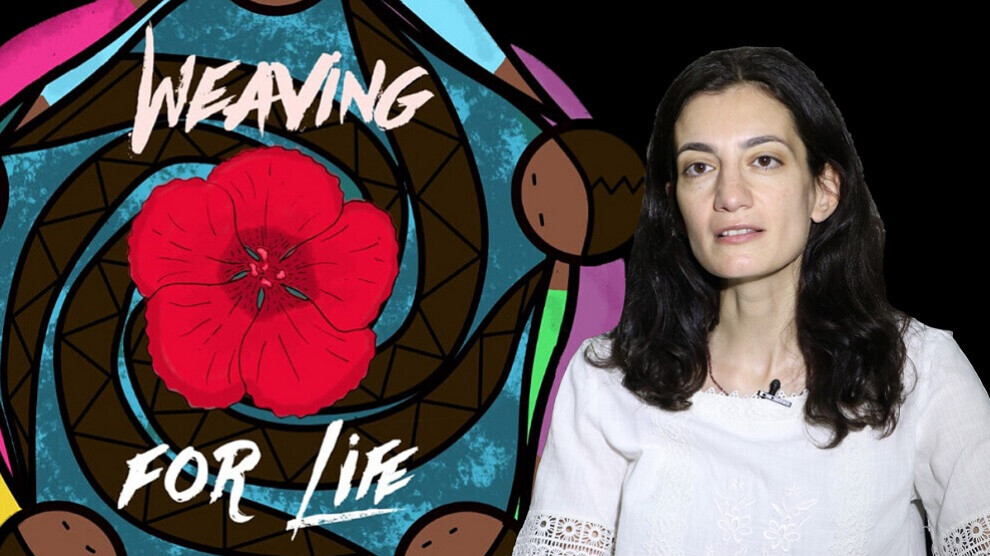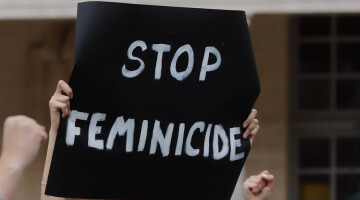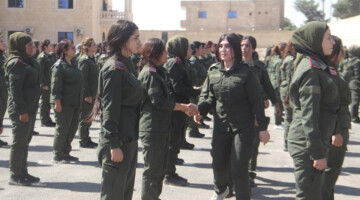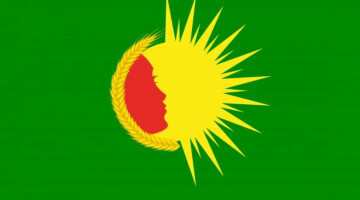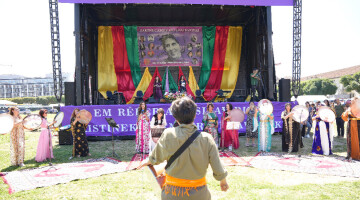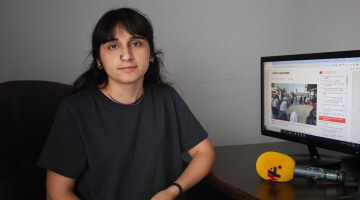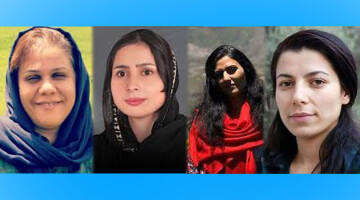73 women's organizations and 181 individuals from numerous countries launched the "Weaving ourselves for life" campaign against femicide in May. The campaign denounces the worldwide murders of leaders of the women's movement. Among the initiators are REPAK (Kurdish Women's Relation Office / Navenda Pêwendiyan a Jinên Kurd), based in South Kurdistan, and the Women's Council of the Future Party of Syria, whose general secretary Hevrîn Xelef was assassinated by Turkish-backed Islamists in October 2019.
Meral Çiçek from REPAK explained the contents of the campaign to ANHA. The Kurdish social scientist is a member of the editorial board of the tri-monthly magazine Jineolojî (Kurdish for "Science of Women") and observes the worldwide development of the women's movement and the increasingly organized struggles against feminicide. As Meral elaborates, a common platform has been established for the campaign. The focus of the campaign is on the systematic murder of women who take a leading role in the struggle against the patriarchal system of domination. "These femicides are not individual murders or isolated cases. We are trying to highlight the structure behind them. The perpetrators are generally not punished and we are waging a legal battle to prevent further murders," said Meral Çiçek.
"As politically active women are murdered around the world, international networks against this must be established. Individual initiatives are less effective. For example, of the leading Kurdish women, Sakine Cansız, Leyla Şaylemez and Fidan Doğan were murdered in Paris, and Hevrîn Xelef was executed during the Turkish invasion of northeastern Syria. The same murders are also committed in Colombia and Mexico. Women who take a leadership role in society are particularly targeted."
For the platform to fight effectively, international networking is necessary, said Çiçek and continued: "Because the women's opponents are also organizing. To increase our alliance, we are contacting other women's organizations. The capitalist forces and the states act together on an international level. In Kurdistan, the states are acting together with Islamists against women. From northern and eastern Syria, the women's association Kongreya Star and the Women's Council of the Future Party of Syria have joined the platform. Arab women have created great social changes there."
REPAK is in constant online exchange with women from Kurdistan, Colombia, Afghanistan, the Philippines, Bangladesh, Mexico and Brazil: "We have short-, medium- and long-term plans. In the short term, we will hold four discussion events. In the medium term, we want to document femicides committed after 2000. As a long-term project, we will establish a women's court. These projects require a lot of work. As women, we will continue our political and legal struggle. We want to enforce that femicides do not go unpunished. In this context, we advocate for an annual day of struggle against murders of leading women," Çiçek added.

